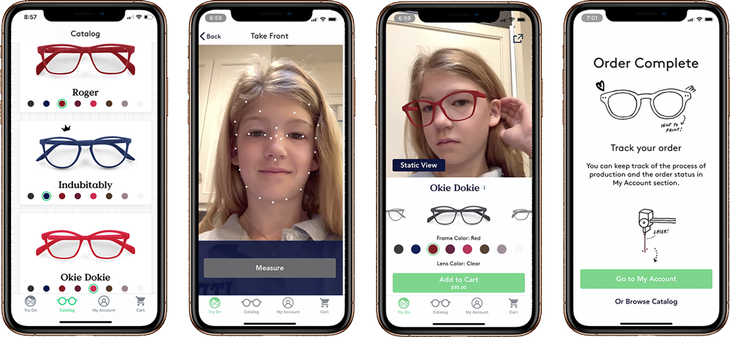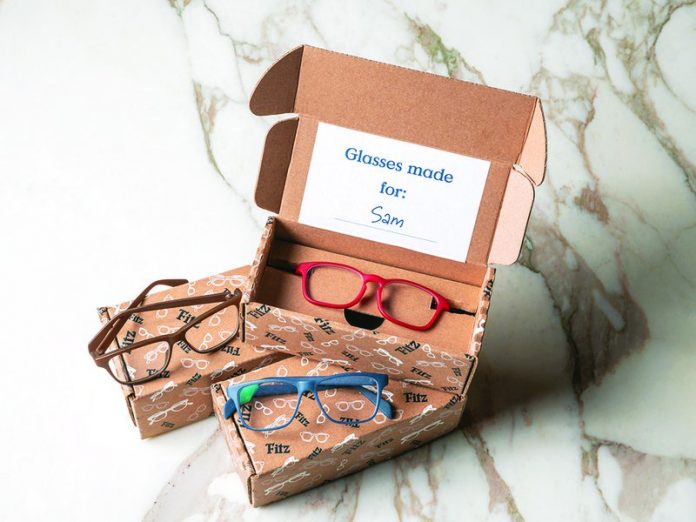by Elizabeth Segran, FastCompany, May 8, 2019

When you’re 3 years old and happen to need prescription glasses, your eyewear can seem like an overwhelming burden. You know your parents spent hundreds of dollars on your glasses, but it’s so easy to break them on the playground or forget them on a bus or an overnight trip.
Fitz Frames creates $95 prescription eye wear that is custom-made for a child’s face. The company also offers $185 annual subscriptions that allow you to get as many free replacements as necessary.
Visiting an optician can be just as stressful as visiting a doctor or dentist. Then, there’s the issue of getting the children to sit still while they try on different frames. All of this is aggravated by the fact that most children’s eyewear doesn’t come in a wide range of sizes.
Hertel and Schlumberger have solved this problem by creating an app that allows children to virtually try out glasses at home, and by 3D printing the frames to the dimension of the child’s face. Parents start by downloading the Fitz Frames app, where they can take measurements of their child’s face. Then they can virtually fit their child with the six different frames. Then, they can choose the pair that they want, which will be manufactured to order in the Fitz Frames factory in Youngstown, Ohio. The glasses will then be delivered within a week.
The glasses come with hinges that snap into the temple rather than requiring a screw. This makes it easier to put the glasses back together and eliminates the risk of losing a tiny screw if they come apart. And parents can also choose to buy a $185 annual subscription, which includes as many replacements as necessary.
Each pair of glasses comes inscribed with the child’s name. If they leave their glasses at school or at soccer practice, someone may find them and give them back. But it’s also a fun touch. “Many kids like knowing that their eyewear was made specially for them,” says Schlumberger.
This business model takes into account a child’s development and their needs as a growing individual. It serves to make the process more fun for the child and less stressful for the parent. The business model uses 3D printing methods to create the product and an app to provide the service. I wonder if the company recycles the used glasses to funnel material back into the 3D printer.




